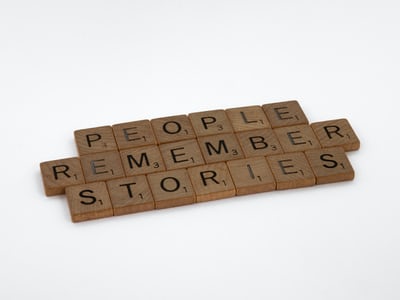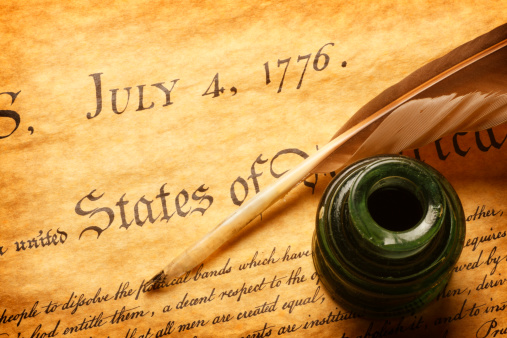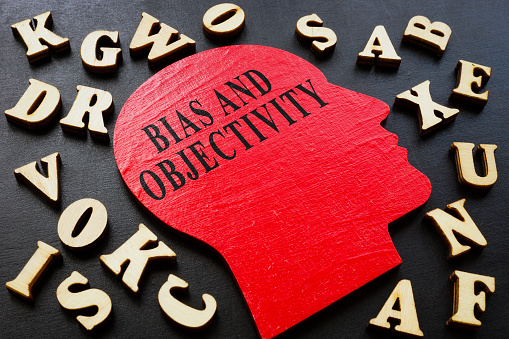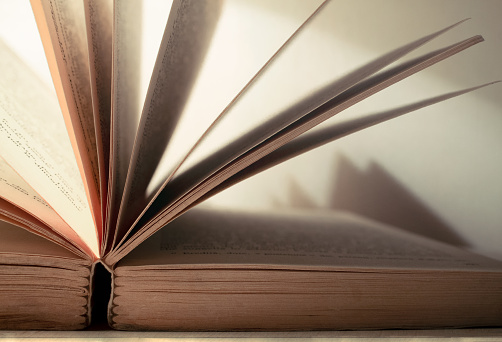Oral history is a method that explores and records the biographical accounts people give of their own lives and those of their preceding generations. This method allows the opportunity to study living history through first-hand accounts of those people who have personally experienced it, as well as a unique opportunity for the often marginalized, ordinary person’s voice to be heard in these historical accounts. Oral history projects are important since they give the individual stories a chance to be understood as a part of a wider social context. Furthermore, these projects help to construct an important account of the local community and family histories which can be preserved and passed on through the generations. This data collected is eventually published and available for public consumption not only to oral historians but to anyone interested in learning more about the areas of study.
There seems to be a fear that once the floodgates of orality are opened, writing (and rationality along with it) will be swept out as if by a spontaneous uncontrollable mass of fluid, amorphous material. But this attitude blinds us to the fact that our awe of writing has distorted our perception of language and communication to the point where we no longer understand either orality or the nature of writing itself.
This blog will aim to suggest some of the ways in which oral history is intrinsically different, and therefore specifically useful.
Orality of oral sources

Scholars are willing to admit that the actual document is the recorded tape or video, since oral sources are oral sources but almost all scholars go ahead and have their recorded data transcribed and work with the transcripts which are later published. In the end, the tapes are actually destroyed: a symbolic case of the destruction of the spoken word. The transcript turns aural objects into visual ones, which inevitably implies changes and interpretation. The different efficacy of recordings, as compared to transcripts -for classroom purposes, for instance -can only be appreciated by direct experience. This is one reason why I believe if you are to transcribe your recordings, having them done in verbatim format is almost as good as the original recordings.
In order to make the transcripts readable, it is usually necessary to insert punctuation marks as needed to emphasize the orality of the interviewee. Punctuation indicates pauses distributed according to grammatical rules: each mark has a conventional place, meaning, and length, this helps in understanding the meaning of speech
Oral History as a Narrative

Oral history sources are narrative sources. Therefore, the analysis of oral history materials must avail itself of some of the general categories developed by narrative theory in literature and folklore. This is as true of testimony given in free interviews as of the more formally organized materials of folklore. Oscillations in how the oral history data is conveyed are important. An informant may recount in a few words experiences which lasted a long time, or dwell at length on brief episodes. In all cases, there is a relationship between the velocity of the narrative and the meaning of the narrator.
Subjectivity of Oral History

Something else that makes oral history different is that it tells us less about events than about their meaning. This is not to say that oral history has no validity but rather they reveal unknown facts of known events. Oral history casts a light on unexplored events. If the approach to research is broad and articulated enough, a cross section of the subjectivity of a group or class may emerge. Oral sources tell us not just what people did, but what they wanted to do, what they believed they were doing, and what they now think they did.
Credibility of Oral History

Oral histories are credible but with a different credibility. Technically, there are no false testimonies, it is all told from the perspective of the interviewee. Everyone remembers their historical facts in ways that they lived through them. One’s historical moment may be differently told when compared to someone else who lived through the same moment. But once we have checked their factual credibility with all the established criteria of philological criticism and factual verification which are required by all types of sources anyway, the diversity of oral history consists in the fact that ‘wrong’ statements are still psychologically ‘true’ and that this truth may be equally as important as factually reliable accounts.
Some oral narrators are literate. Many informants read books and newspapers, listen to the radio and TV, hear sermons and political speeches, and keep diaries, letters, clippings, and photograph albums. Orality and writing, for many centuries now, have not existed separately: if many written sources are based on orality, modern orality itself is saturated with writing.
Objectivity of Oral History

Oral testimony is only a potential resource until the researcher calls it into existence and the content of the written source is independent of the researcher’s need and hypotheses. It is a stable text, which we can only interpret and the content of oral sources depends largely on what the interviewer puts into it in terms of questions, dialogue, and personal relationship. The researcher decides when an interview will take place. Researchers often introduce specific distortions: informants tell them what they believe they want to be told and thus reveal who they think the researcher is. On the other hand, rigidly structured interviews may exclude elements whose existence or relevance were previously unknown to the interviewer and not contemplated in the question schedule. Such interviews tend to confirm the historian’s previous frame of reference.
The first requirement, therefore, is that the researcher ‘accept’ the informant, and give priority to what she or he wishes to tell, rather than what the researcher wants to hear, saving any unanswered questions for later or for another interview. The interviewees are always, though perhaps unobtrusively, studying the interviewers who ‘study’ them. Historians might as well recognize this fact and make the best of its advantages, rather than try to eliminate it for the sake of an impossible (and perhaps undesirable) neutrality.
Authorship of Oral History

The control of historical discourse remains firmly in the hands of the historian. It is the historian who will select people who will be interviewed and contributed to the collection of oral history data, who contributes to the shaping of the testimony by asking the questions and reacting to the answers; and who gives the testimony- its final published shape and context.
Oral history has no unified subject; it is told from a multitude of points of view, and the impartiality traditionally claimed by historians is replaced by the partiality of the narrator. ‘Partiality’ here stands for both ‘unfinishedness’ and for ‘taking sides’: oral history can never be told without taking sides, since the ‘sides’ exist inside the telling, and no matter what their personal histories and beliefs may be, historians and ‘sources’ are hardly ever on the same ‘side’. The confrontation of their different partialities -confrontation as ‘conflict’, and confrontation as ‘search for unity’ is one of the things which make oral history interesting and more importantly different.
Conclusion
Oral historians present themselves usually in the role of what literary theory would describe as an ‘omniscient narrator’. They give a third-person account of events of which they were not a part, and which they dominate entirely and from above the consciousness of the participants themselves. They appear to be impartial and detached, never entering the narrative except to give comments aside, after the manner of some nineteenth-century novelists. This brings to life oral history facts and tales that oral historians have a desire to revive, which all the more makes this area of study different and special.
That’s it for this blog, check out our blog post on Well-being and Oral History. Keep us in mind for any of your oral history transcription needs or with any comments you may have. Remember always be kind, try to stay positive and learn to unwind.
